Is Switzerland expensive? This European country has a reputation for being one of the most expensive countries on the planet, but how accurate are the rumours?
Well, I hate to break it to you, but, uh, yeah, they’re pretty accurate.
Personally, I’ve travelled to a hundred countries over the past decade and Switzerland? Even on my most recent visit, taken at a time where everywhere has become more expensive, it still easily mades the top three when it comes to price.
It’s not all bad news, however, as I found tons of way to cut costs and find great value for money. Whether it’s using one of the many discount passes available, seeking out street food instead of eating in restaurants, or opting for comfortable guesthouses over high-end hotels, there are plenty of ways to keep on budget.
I’ve been keeping track of every single dollar I’ve spent over my past 12 years of travel, and I love distilling that information into detailed budget breakdowns. In these articles, I aim to share exactly how much I spent while travelling, covering budgets for all different kind of travellers, and ways in which you can lower your costs.
Today it’s Switzerland’s turn, so let’s get started.
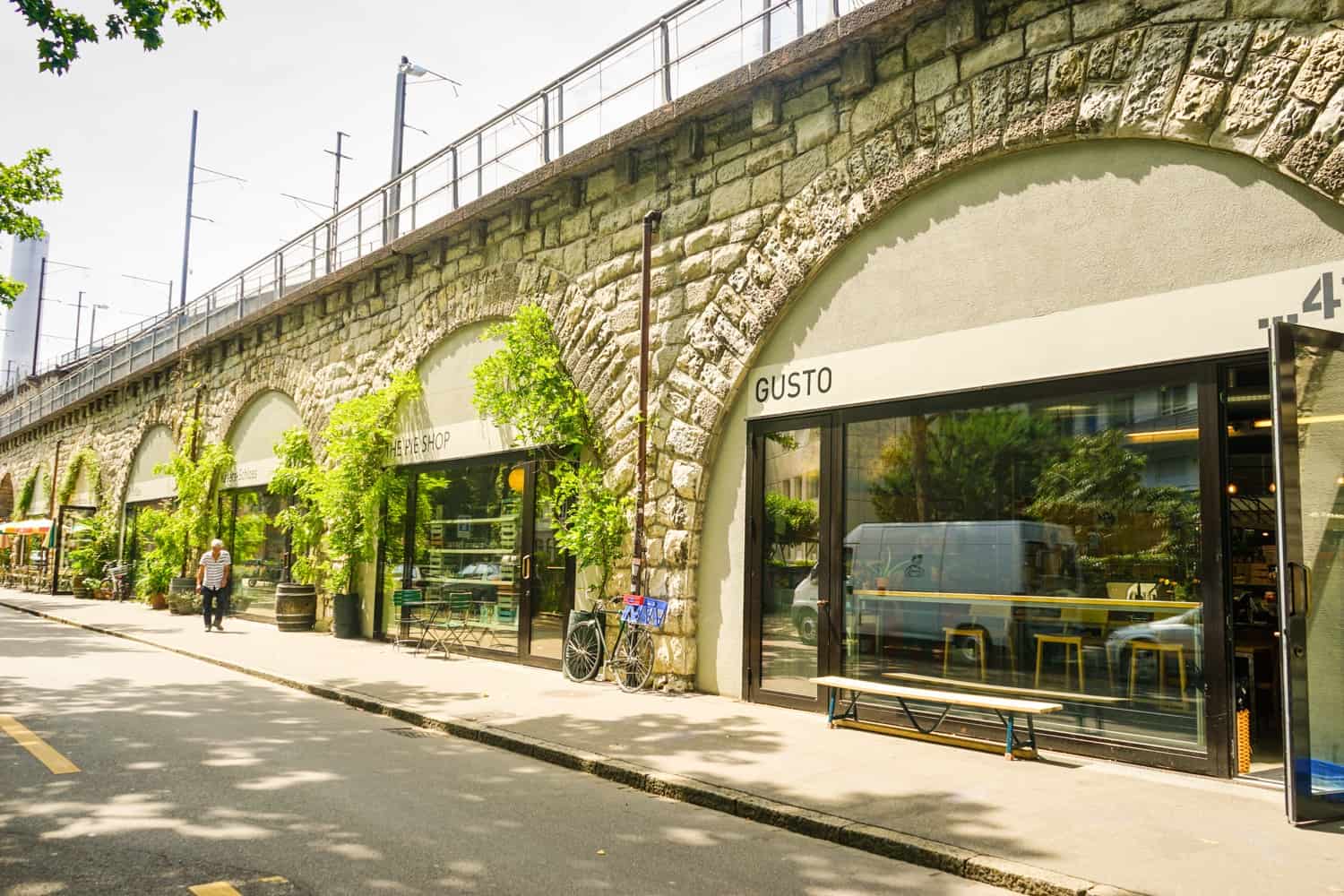
The Cost of Accommodation in Switzerland
You can visit Switzerland on a whole range of budgets, from a CHF 23 (€24) a night dorm bed in the Alps to an absolutely incredible CHF 900 (€950) a night hotel, the latter of which is the best hotel in Zurich and a haven for world-famous celebrities.
In this blog post, I’m going to be focusing on value. Because whether you’re travelling as a solo backpacker on a shoestring, as part of a couple on a mid-range budget, or as a family looking for a little luxury, value is the one thing you’re going to be keeping an eye out for. That doesn’t mean cheap — it means offering more than similarly-priced options.
There’s some seriously expensive accommodation up for grabs in Switzerland, so to start with, I’m going to cover the cheapest ways to find a bed for the night.
If you’re on the tightest of tight budgets, there are several options that’ll land you with free accommodation while you’re in the country. Courchsurfing allows you to connect with locals by sleeping on spare sofas in their homes. It doesn’t cost a penny to do so and is a fantastic way to gain an insight into Swiss daily life away from the tourists. There are close to 250,000 hosts in Switzerland, so there’s sure to be someone who’s right for you.
Housesitting is a more upmarket way to avoid paying for accommodation, as it’s aimed at the mid-range and luxury travellers. You’ll be looking after homes and pets while their owners are on holiday, and the houses can be extremely luxurious. This option works best if you don’t have fixed travel dates, as you’ll be agreeing to dates that the owners set.
Finally, when it comes to free accommodation, you could take a look at WorldPackers in Switzerland, where you’ll be able to volunteer with locals in exchange for food and board. I’ve seen some seriously cool options available on the site, from working at an eco farm in the Alps to helping build a yoga studio in a small, traffic-free village in the mountains. Readers of this site get a $10 discount for WorldPackers with the promo code neverendingfootsteps.
If you’re not looking to travel for free and just want a clean and comfortable room to sleep in, there are plenty of great options, too.
One of the most affordable ways to explore Switzerland is by staying in a hostel. I stayed in several during my first visit to the country and was impressed by their quality: I just wish there were more of them! Let’s look at the best-reviewed hostels in the country.
- The best hostel in Zurich is easily the Zurich Youth Hostel, where a space in a six-bed dorm is priced at just CHF 57 (€60) per person, and private doubles come in at CHF 136 (€144) per night. We loved our stay here! The included Swiss-style breakfast was delicious (and another great way to save money), and we really liked how close it was to Lake Zurich. Chilling out with a drink beside the lake on a summer evening is one of my favourite memories of the city.
- In Bern, you can’t get better than Bern Backpackers where the dorms are CHF 41 (€44) per night and the private double rooms are CHF 103 (€109) a night. You couldn’t ask for a better location either, just a ten minute walk from the main train station in the centre of town. There are a few other good hostels in Bern as well, but this one is rated just as well while being far cheaper than the alternatives.
- You’ll likely be heading to Lucerne while you’re in Switzerland, and if so, I recommend Young Backpackers Homestay, which has dorms for CHF 116 (€122) a night and double rooms for CHF 174 (€184) a night. It’s certainly pricey for a hostel, but it’s also the best-rated hostel in the entire country! It’s not hard to see why: it feels more like staying at a fancy ski lodge than a traditional backpackers, with everything from a sauna and hot tub to a foozball table, commercial-style kitchen, and incredible views from the cozy lounges and patios. Trust me: it’s 100% worth the price.
- Basel is home to Silo Design & Boutique Hostel, where dorms are priced at CHF 63 (€67) a night and doubles at CHF 142 (€150). No wonder it’s the best-rated budget accommodation in town, with its great location, friendly staff, tasty included breakfast, and immaculate vibes.
- What about Geneva? MEININGER Hotel Genève Centre Charmilles is the only place I’d consider staying. Not only is it inexpensive (well, for Switzerland) at CHF 42 (€45) a night for a dorm and CHF 141 (€149) for a twin, but the design is sleek, the location perfect, and the continental or buffet breakfast delicious.
Overall, then, you can see that you can expect to spend CHF 40-60 (€42-63) a night for dorms in most parts of Switzerland, and CHF 100-140 (€106-148) a night for the cheapest double rooms in each destination.
Okay, but what if you’re not a budget traveller and just want to stay in a lovely, well-reviewed hotel or guesthouse that’s good value for money and has all the things you need from a place to lay your head? I’ve got you! For around €150-200 a night, you’ll be able to stay in an excellently-reviewed hotel, in a central location, with friendly staff.
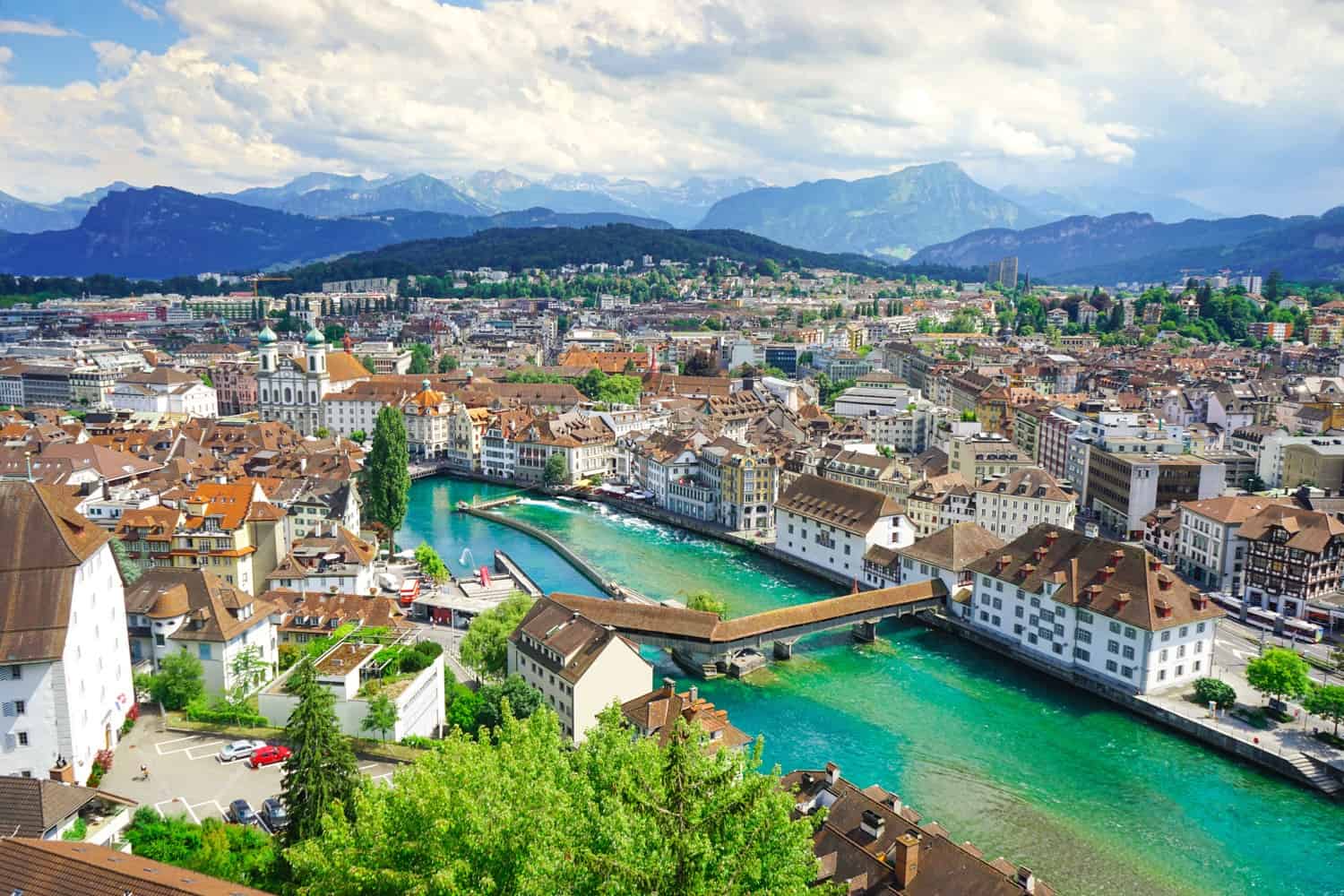
My 2024 Accommodation Recommendations for Switzerland
When I’m travelling, I’m always conscious to book the absolute best accommodation out there. I can easily spend days researching accommodation for every stop along my way, ensuring I’ve chosen the place in the best location with the friendliest staff, and the greatest value for money.
My biggest tip? When you head to Booking to find a hotel, ignore the results that are sorted under “Our Top Picks” — that’s a list of all of the hotels that pay Booking the highest commission, some of which have pretty poor write-ups. Instead, opt to sort the properties by “Top Reviewed”. That way, you’ll be able to see which properties actually have the best reviews.
To give you an idea of what you can expect to spend on a trip, I always like to share where I personally stayed and what I thought of the accommodation. All of the properties below come in at a mid-range budget:
In Zurich, the choice is easy: I’d highly recommend the recently-opened Locke am Platz Zurich , where double rooms cost CHF 194 (€205). Trust me: the price is actually super-reasonable (by the standards of this expensive city!). This hotel is sooooo stylish; I was obsessed with all the little interior design features! Our room came with its own kitchenette, which helped us save money on food. There was an excellent restaurant downstairs, too, which was great for dinners in the evening if you don’t feel like heading outside. The hotel’s in a great location, too, close to parks, gardens, and the lake, with a station for the airport train just down the street.
For Bern, I’d recommend opting for Stay KooooK Bern City. It’s in the best location in the city; a five minute walk from the main train station and close to most of the city’s main attractions. The compact, modern rooms cost CHF 211 (€233) and were home to the most comfortable beds in the country. Well, in my opinion, at least! You’ll get amazing views across the city from the rooftop terrace, and I loved having access to the shared space, dubbed “The Flat”, which includes a large kitchen, lounge, and games room for all guests to use. I was a big fan of this place.
For Lucerne, your best option is Hotel Goldener Stern. This near-new hotel is in a great spot right on the edge of the Old Town, an easy stroll from all the major attractions and the lake. The rooms (CHF 181/€191 for a double) are immaculately clean, with everything you might need inside: there’s a desk for getting a bit of work done, a coffee machine to help get the day started, and a fridge so you can guarantee a cold drink when you come back from a few hours exploring in the summer heat.
For Basel, I really enjoyed Hotel Spalentor, a delightful hotel that was only a five minute walk from the old town and university, and provides impressive value for money at CHF 170 (€180). The rooms are modern and surprisingly spacious, super-quiet, and with a coffee machine to boot. I especially appreciated the fitness centre and spent many afternoons in their lovely garden with a drink in hand. Bikes are available for free to use during your stay, and there are even DVDs you can borrow from reception if you’re in the mood for a lazy day inside.
Okay, as soon as I discovered that you could stay on Lake Geneva (rather than beside it), I was sold. Floatinn Boat-BnB is a luxury catamaran, moored right beside the downtown area and opposite the famous Jet d’Eau fountain. The cabins (CHF 206/€218) are comfortable if a little snug (you’re on a boat, after all!) but all have a private bathroom, and there’s a large sundeck to laze on and admire the incredible view. All of Geneva’s attractions are within an easy walk, but make sure you don’t rush off first thing in the morning: the owner rustles up an incredible breakfast. Such a unique property and one that I can’t stop dreaming about!
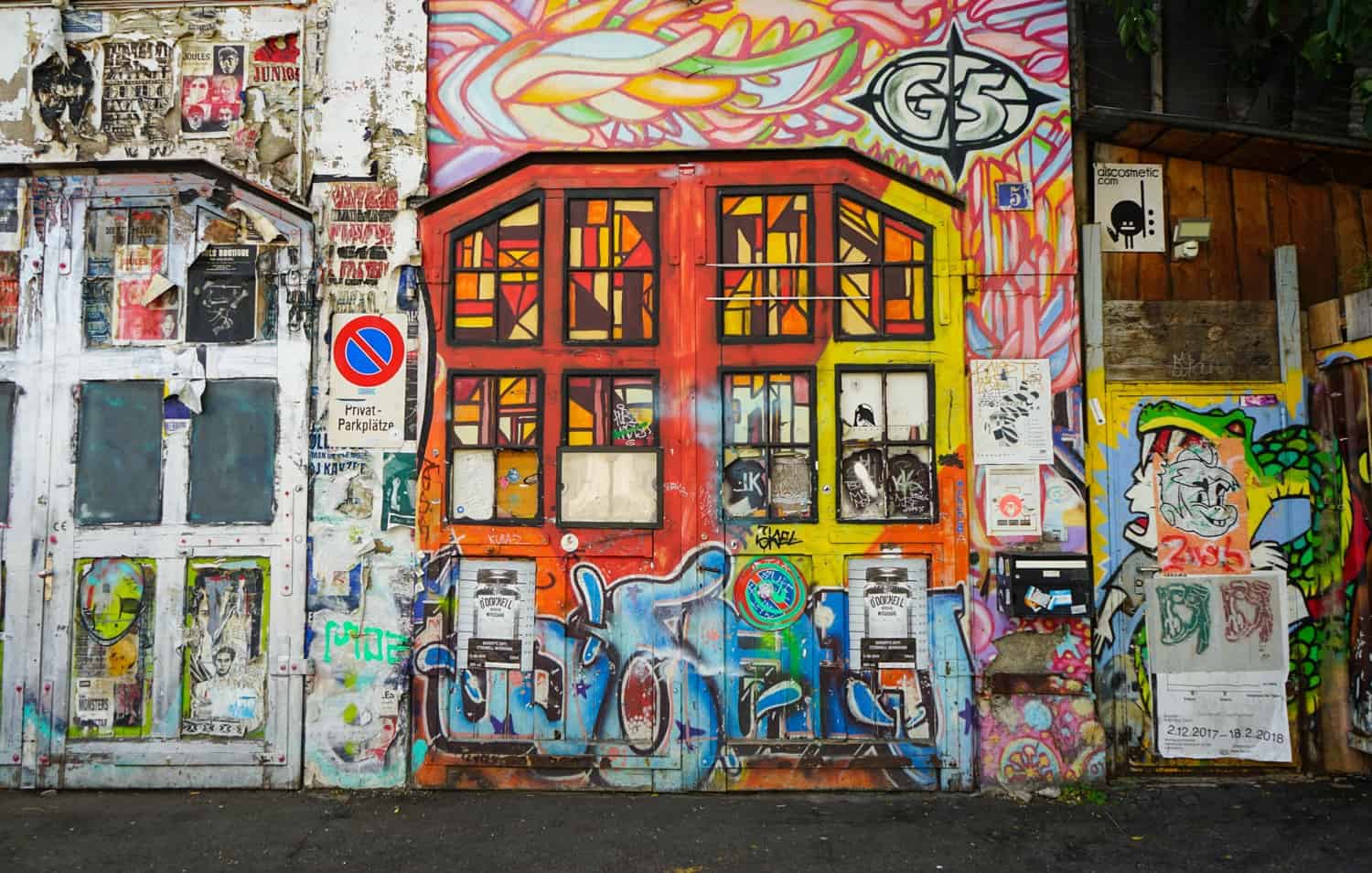
The Cost of Transportation in Switzerland
Transport around Switzerland can get pretty expensive, but there are definitely ways to save money. If you’ll be in the country for a while or just expect to do a lot of moving around while you’re there, the best tip I can offer is to pick up a Swiss Half Fare card.
Only available to overseas visitors and valid for 30 days, it costs CHF 120/€127 up front. After that, you get 50% off basically every train, bus, and boat trip you take in the country, most mountain railways, and all public transport in 90+ cities and towns. If you’re travelling with kids, you can also get a free Family Pass with your card: using that, one child under 16 travels free for each adult with a card. This can really cut down the cost of family travel!
Whether you’ve got a pass or not, you’ll save money if you’re happy to give up some flexibility. Where they’re available, supersaver tickets with fixed departure times are cheaper than “point-to-point” tickets that let you travel at any time on a given day. Just be sure not to miss the train: you’ll need to buy a replacement ticket if you do!
Many major cities also provide free local transport passes to overseas hotel guests, at least for the first 24 hours. Be sure to grab one if it’s offered! That said, every city in Switzerland is very walkable, so you shouldn’t need to use public transport to get around if you’re staying somewhere central. I walked absolutely everywhere — even in Zurich — and never once found it difficult or tiring to do so.
Note that in some cities (like Zurich), certain ferry routes on the lake are also included in the public transport zone system. Confirm the details for any specific ferry you want to take, but if you’ve got a 24-hour or other all-inclusive public transport pass, it’s a good way of getting out on the water!
While it’s possible to fly between certain cities in Switzerland, it’s really not worth doing. It’s not a big country, and the trains are fast, efficient, and noticeably cheaper than taking a plane. Getting between Zurich and Geneva ( from one end of the country to the other) takes under three hours, starts and finishes right in the central city, and costs around a third of a comparable flight.
Finally, it’s worth mentioning the Swiss All-in-One Travel Pass, which provides unlimited travel for anywhere between 3-15 days on all Swiss trains, buses, and public transport. It also includes free entry to hundreds of museums, one free mountain excursion, and discounts on many others. You can get all the details for it here.
With that out the way, here are a few examples of what you should expect to pay for transport in Switzerland.
- Train or tram from the airport to downtown Zurich: CHF 3.40 (€3.60)
- Zurich tram, bus, or ferry – single ride in one or two zones: CHF 4.60 (€5)
- Zurich 24-hour public transport pass (two zones): CHF 9.20 (€10)
- Train from Zurich to Lucerne (one-way): CHF 19 (€20)
- Train from Zurich to Geneva (one-way): CHF 64.40 (€68)
- Train and bus from Zurich to Vaduz, Liechtenstein: CHF 31.80 (€33.80)
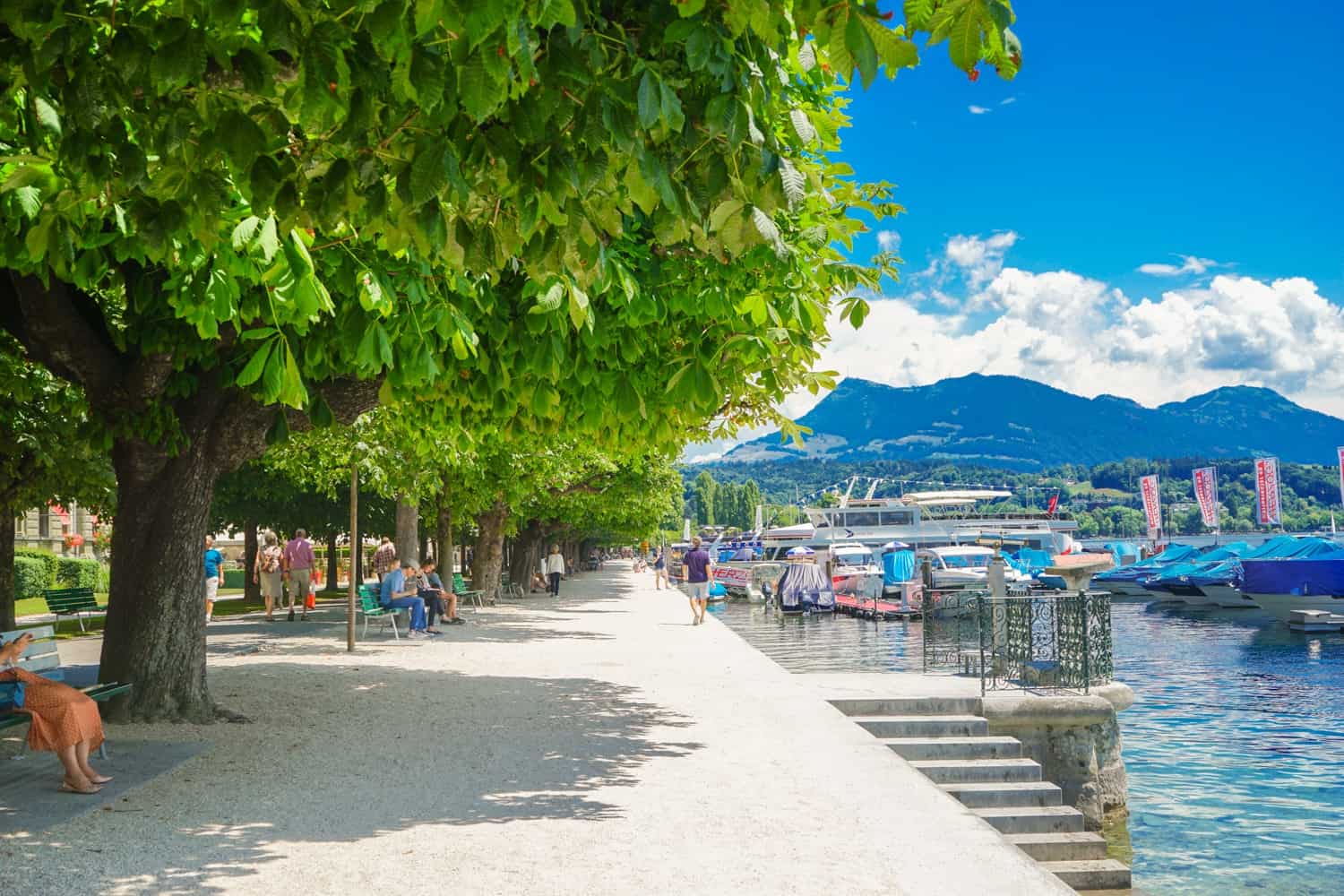
The Cost of Food in Switzerland
If I were to ask you what you know about Swiss food, odds are, you’d come back to me with two iconic dishes: cheese fondue and chocolate. After all, they’re two of Switzerland’s most famous creations, so — unless you don’t eat dairy! — you’re definitely going to want to sample both while you’re in town.
Fondue is life up in those Swiss mountains, and most restaurants offer it on their menus. You can think of it as a gigantic cheese dip that’s often served in a communal pot atop a small stove. To eat it, you dip rustic country bread into the melted cheese with a long metal fork. The cheese itself is typically a blend of 50-50 gruyère and vacherin and has been cooked with white wine and garlic, resulting in one of the tastiest dishes on the planet. You can expect to pay €30-35 per person.
Now, one thing to keep in mind is that the majority of Swiss people treat their lunch as their main meal of the day: this is when you’ll find cheap deals at cafes and restaurants. Either opt to join the locals and have a large meal at midday, or head to a grocery store to pick up supplies for a picnic. Head to Aldi, Lidl, or CoOp to find the cheapest provisions.
Whenever I find myself travelling in an expensive country like Switzerland, I find myself turning to fast food and street eats: specifically, kebabs. Yep, on a day trip from Zurich to Lucerne, I decided to up the classy dial and ordered a kebab for lunch. The cost? CHF 10(€11). So much cheaper than almost any alternative in the city, and very tasty as well!
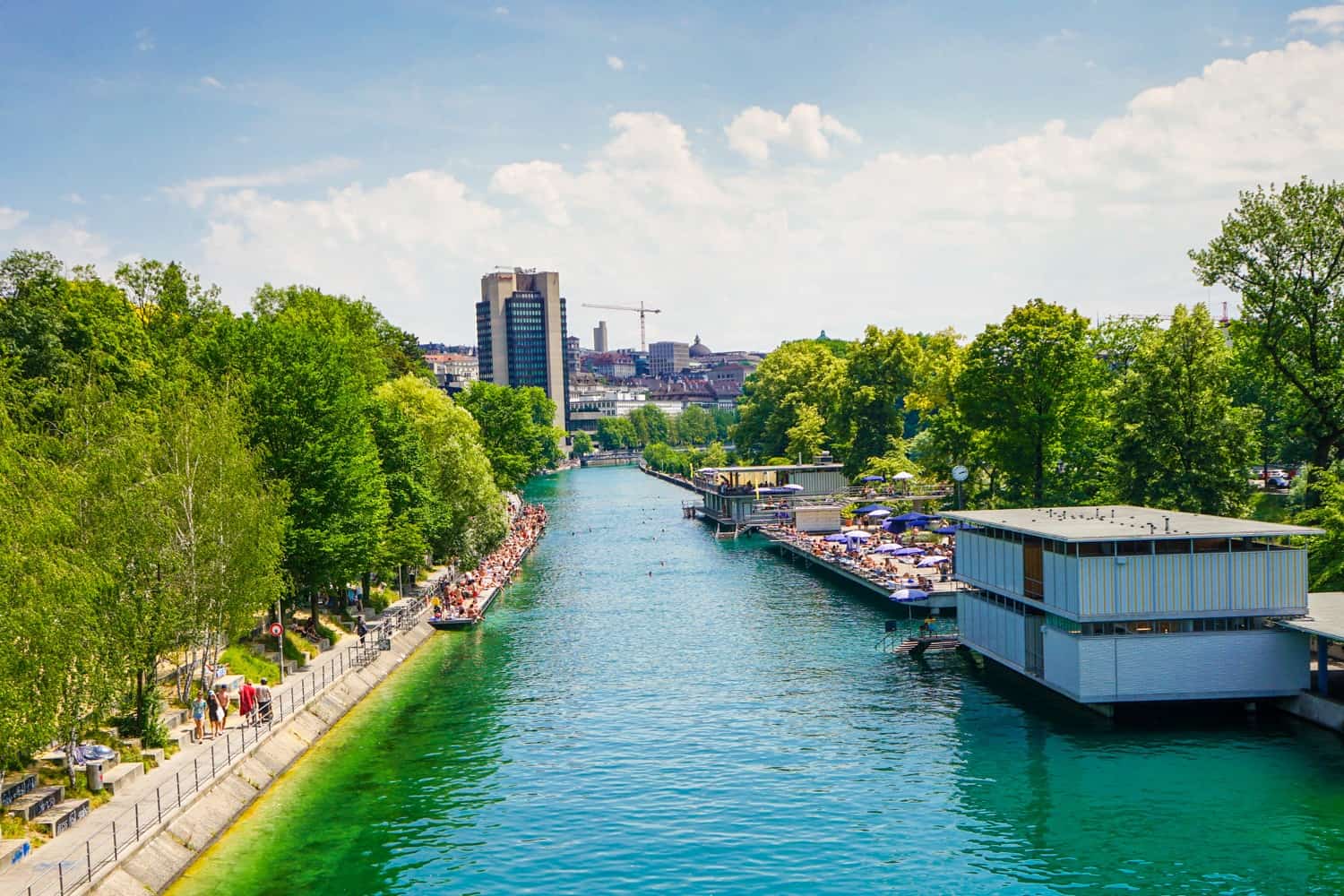
The Cost of Activities and Entrance Fees in Switzerland
Next up: activities! Activities and entrance fees can often make up a large proportion of your travel expenses. Fortunately, in Switzerland, those costs can be relatively low, as there’s so much available to do for free.
Switzerland is a nature enthusiast’s playground, blanketed in mountains and lakes, which are easily to climb and explore. One of my favourite Swiss activities involve simply choosing a hiking trail, packing a picnic, and preparing myself for views that are straight out of a postcard.
An easy way to save money on your vacation is by utilising the country’s city cards to gain discounts and entrance to all of the most popular attractions. The Zurich Card, for example, is priced at CHF 29 (€31) for 24 hours of use, or CHF 56 (€59) for 72 hours. This offers up phenomenal value, because the card gives you access to unlimited use of public transportation in the city, a free boat trip on Lake Zurich, entrance to 40 museums, a 50% discount on the Zurich old town walking tour, and a 20% discount in several stores in the city. The Zurich card is also valid on transport between the airport and the city centre.
There’s also a Geneva City Pass, which is priced at CHF 30 (€32) for 24 hours, CHF 40 (€42) for 48 hours, and CHF 50 (€53) for 72 hours. As with the Zurich Card, you’ll receive free access to all public transport, entrance to tons of museums and attractions, free skiing, free cable car rides, free boat hire on the lake — you get so much with this pass that you’ll be saving money within a couple of hours of arriving.
Aside from the city passes, there are plenty of tours, excursions, day trips, and activities to sample. One museum that is worth the entrance fee is Zurich’s Lindt Home of Chocolate Museum — tickets are priced at CHF 15 (€16) per person and can be bought in advance here. If you love your chocolate, you’re going to adore this museum. Not only does your ticket grant you unlimited tastings of Lindt chocolate, but there’s also a nine-metre-high chocolate fountain to take photos with!
If you’re not planning on spending much time outside of Zurich, make sure to squeeze in a day trip or two, to ensure you see more of this beautiful country. This day trip to Grindelwald and Interlaken costs CHF 97 (€102) for 12 hours of exploring. You’ll see all the prettiest parts of Switzerland, as you gaze up at the triple peaks Eiger, Mönch, and Jungfrau, take the cable car up to Mount First, jump aboard the scenic train between Grindelwald and Interlaken, and funicular up to Interlaken’s Harder Kulm mountain.
Speaking of mountains, there are so many to see! From Lucerne, CHF 145 (€153) gets you up to the incredible Mount Titlis on this day trip experience. Mount Titlis is the only accessible glacier in Central Switzerland, and you’ll spend your day riding the world’s first revolving cable car up the mountain, dancing across Europe’s highest spectacular suspension bridge, and wandering through a real-life glacier cave.
From Geneva, I have to recommend taking a day trip out to Chamonix and famous Mont Blanc. How could I not? For CHF 105 (€111) per person, you’ll get to spend 10 hours exploring two of Europe’s most well-known destinations. After crossing the French border, you’ll hit up Chamonix — yes, the exclusive ski resort and the site of the first ever Winter Olympics. You’ll take the cable car to Aiguille du Midi, and take in Mont Blanc from so many different viewpoints. You can even opt to jump on the Montenvers rack railway to the Mer de Glace glacier.
If you know anything about Interlaken, it’s probably that it’s one of Europe’s top adventure travel destination. And the number one activity in town? Paragliding! For CHF 180 (€190) per person, you’ll be able to jump on a tandem paragliding experience that’ll give you access to some of the best views in the country, if not the entire world. Seriously — check out the photos from the tour company!
And finally, I’ve saved the best activity for last, because if there’s one thing you simply have to experience while you’re in Switzerland, it’s Jungfraujoch! Simply buy your ticket online (CHF 233.80/€247 for a return), exchange it for a pass at Interlaken Ost, Jungfraujoch, or Lauterbrunnen train station, then experience the journey to the highest train station in Europe. The views are phenomenal.
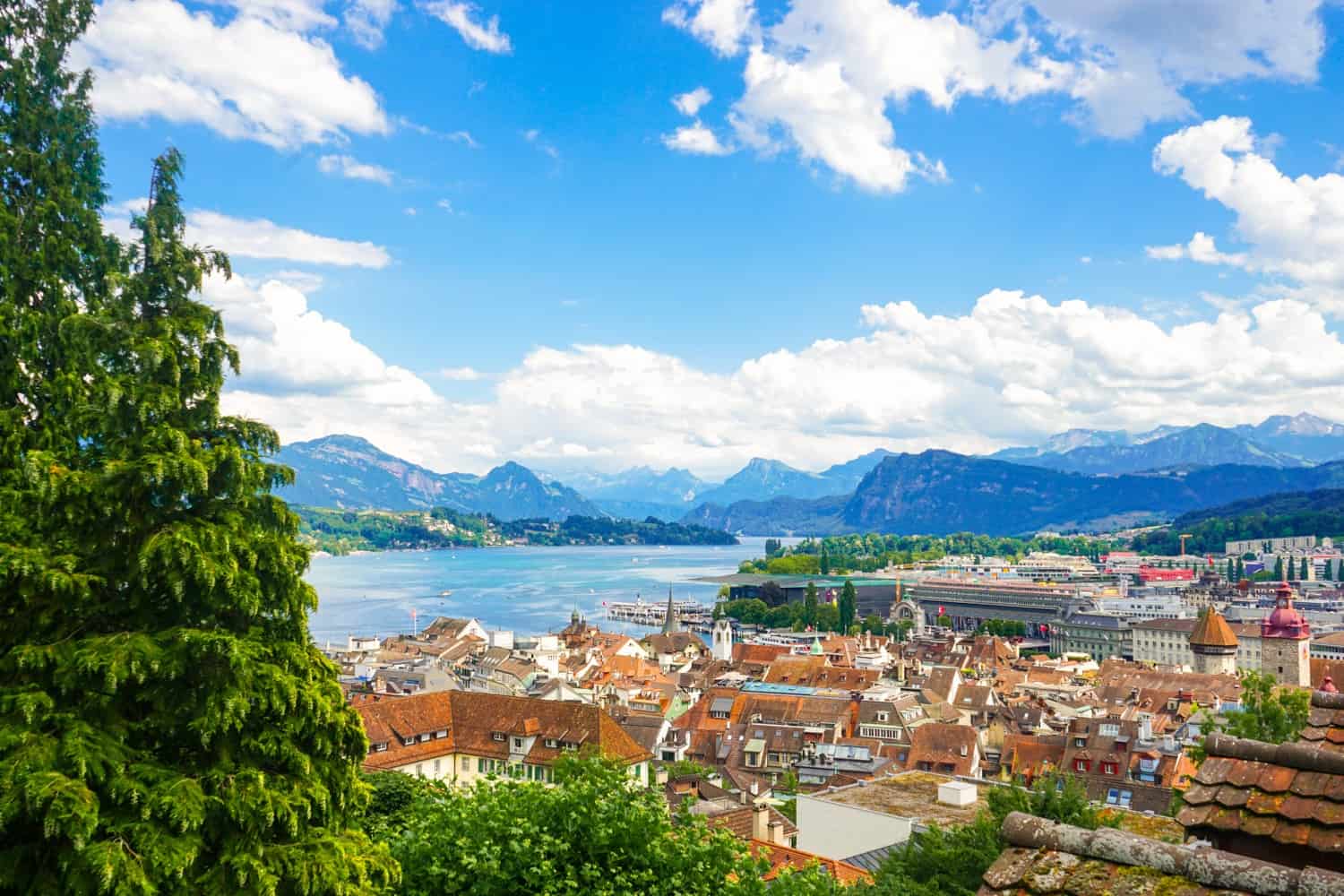
The Cost of Travel Insurance in Switzerland
If you’ve read any other posts on Never Ending Footsteps, you’ll know that I’m a great believer in travelling with travel insurance. I’ve seen far too many Go Fund Me campaigns from destitute backpackers that are unexpectedly stranded in a foreign country after a scooter accident/being attacked/breaking a leg with no way of getting home or paying for their healthcare. These costs can quickly land you with a six-figure bill to pay at the end of it.
In short, if you can’t afford travel insurance, you can’t afford to travel.
Travel insurance will cover you if your flight is cancelled and you need to book a new one, if your luggage gets lost and you need to replace your belongings, if you suddenly get struck down by appendicitis and have to be hospitalised, or discover a family member has died and you need to get home immediately. If you fall seriously ill, your insurance will cover the costs to fly you home to receive medical treatment.
I use SafetyWing as my travel insurance provider, and recommend them for trips to Europe. Firstly, they’re one of the few companies out there who will actually cover you if you contract COVID-19. On top of that, they provide worldwide coverage, don’t require you to have a return ticket, and even allow you to buy coverage after you’ve left home. If you’re on a long-term trip, you can pay monthly instead of up-front, and can cancel at any time. Finally, they’re more affordable than the competition, and have a clear, easy-to-understand pricing structure, which is always appreciated.
With SafetyWing, you’ll pay $1.50 a day for travel insurance.
How Much Does it Cost to Travel in Switzerland?
With all of that being said, it’s time to tally up all of my travel expenses in Switzerland, in order to give you an idea of how much you can expect to spend while travelling in this wonderful country:
Accommodation: CHF 192 per day for two people (CHF 96 each)
Transportation: CHF 19 per day
Food: CHF 31 per day
Activities: CHF 37 per day
Total amount spent per day per person: CHF 183 (€193)
Are you planning a trip to Switzerland? Have any questions? Let me know in the comments below!
Further Reading on Switzerland
🇨🇭 15 Best Things to Do in Geneva, Switzerland
🏔 Top Things to do in Zurich, Switzerland
⚛️ A Private Tour of CERN’s Large Hadron Collider

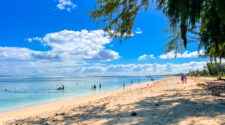


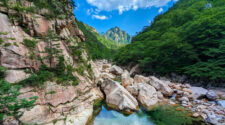
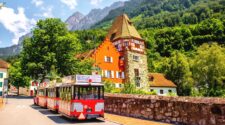
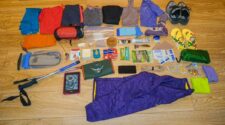
How would you recommend one – 1 1/2 week budget travel experience in Switzerland? After Switzerland, I plan to go to South of France. Any suggestions there?